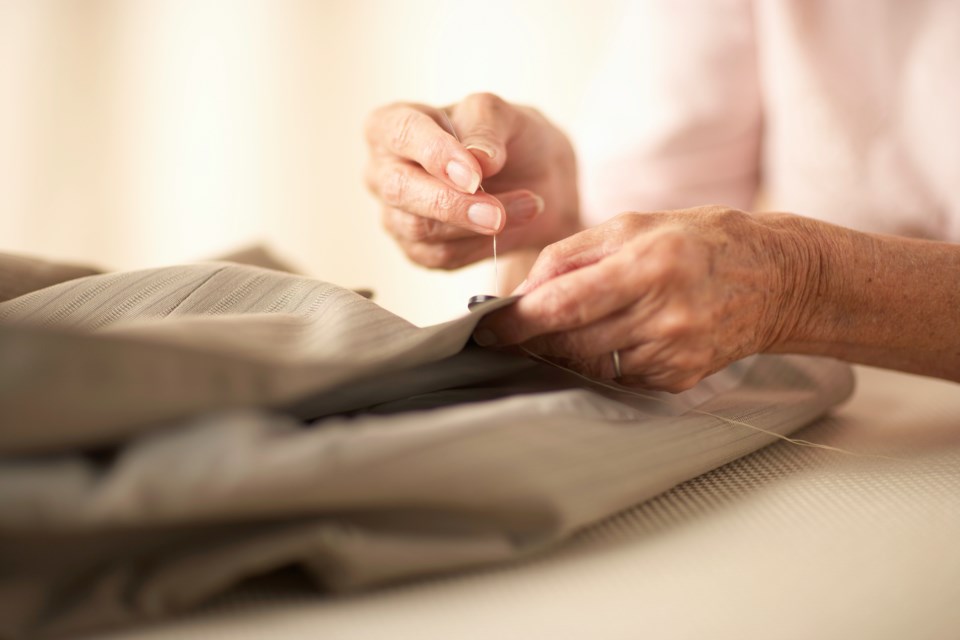We spend far less of our income on clothes now than in the 1950s, but we buy much more. The result, inevitably, is a glut of poor quality, trend-oriented fashion that ends up in the landfill or the guilt-relieving box headed to the thrift store.
Emptying an overflowing bathtub one ladle at a time is far less effective than turning off the tap. Reducing consumer demand for new and cheap clothing is vital to turning the polluting cruise ship of an industry back to port.
Sending textile waste to that magical land of “away” is part of the challenge. Landfills, however, may soon no longer accept textile waste, putting appropriate pressure on the industry to take responsibility for the end of life of its products.
The fashion industry is, in fact, one of the most devastating for the planet. Its impact is felt most viscerally in developing nations where cheap labour and reduced environmental monitoring appeal to companies chasing larger profit margins.
Natural fibres such as cotton are heavily sprayed with pesticides and require large amounts of water. Working conditions are notoriously atrocious. Chemical dyes bleed unfiltered into rivers. Synthetic fibres demand petroleum extraction. And that’s just a part of the mountain of dirty laundry in the fast fashion industry.
Instead of seasonal rotations of the past, we now see weekly turnover and a single-use disposable mindset. Rather than spending the time to fix or shop second hand, the relatively cheap cost of buying new – and anonymously at that – has lulled some into a comfortable rhythm of the “hobby” of shopping online.
Running naked in the streets isn’t exactly a practical solution, despite the summer heatwave. What then? By now, we all know better but we may just need a little nudge of a reminder.
Aim to buy less, buy quality, buy used or upcycled, buy natural fibres, and repair instead of landfill. Luckily, resources that make these good decisions easier are once again becoming more mainstream.
Thrift stores are big businesses whose prices are cheating ever upwards. Supporting smaller, local second-hand shops and consignment stores keeps more money in your pocket and in the community.
Skip the cashier all together with a clothing swap – either informal between households with similar aged little ones, with friends, or at a community level. One such opportunity is just around the corner in Powell River on Wednesday, July 6, at the Townsite Market, upstairs from 6 to 8 pm. Bring clean and wearable clothing only.
Find inspiration by visiting Eunoia Fibre Studio and Gallery, an upcycled fashion store that is co-sponsoring the event alongside Townsite Market, Volunteer Powell River, Youth 20/20 Can and the Youth Community Action Team.
Clothing from generations ago is still in circulation because of its craftsmanship. With the breadth of fashion nowadays, bringing items into your wardrobe from your parents’ and even grandparents’ era is actually pretty hip. The planet, however, is more concerned with sustainable consumption than the runway.
Whatever you do, keep breathing life into the clothes you have. Learn to mend your zipper, sew on a button or alter a hem, or find someone in your life you can trade this skill set for something you do with ease.
Nothing is free, and the true cost of clothing we bring into our lives needs more consideration than ever. If you’re buying new, think about whether you could pass the item down to your grandchild one day. What a thought.
Let’s Talk Trash is qathet Regional District’s waste reduction education program, whose aim is to help bring the community closer to true zero waste. For more information, email [email protected] or go to LetsTalkTrash.ca.



